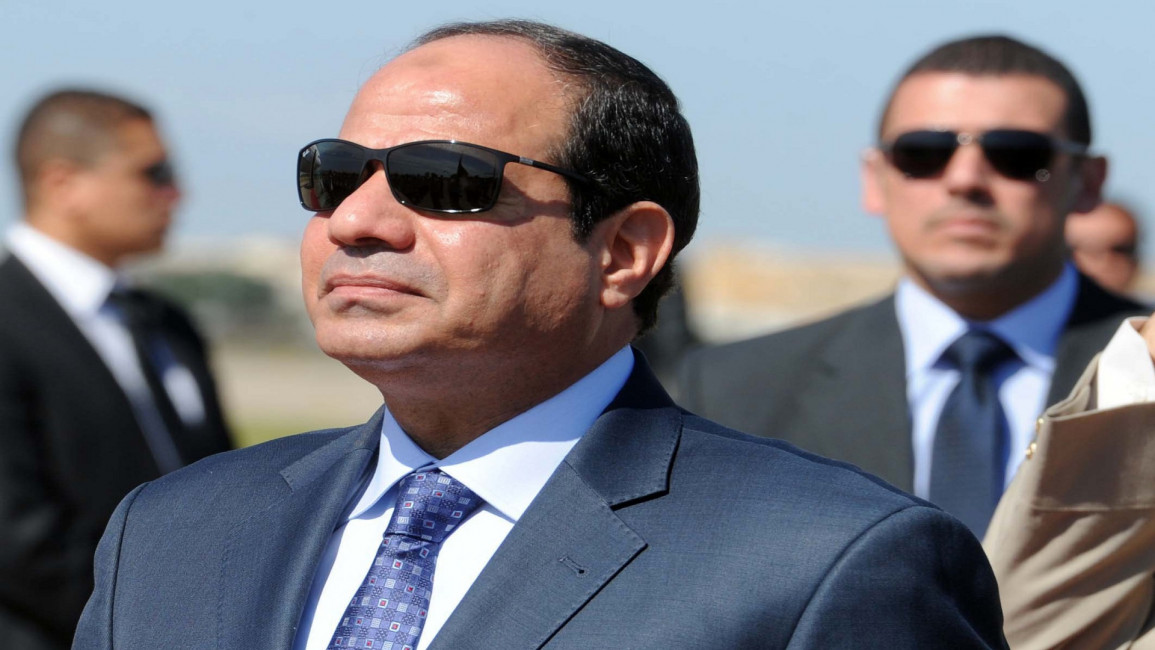
Sisi’s Gaza dilemma
Abdul Fatah al-Sisi has failed his first genuine and serious test of foreign policy stemming from the scandal of Egypt’s approach to Israel’s war on Gaza.
At first, the Egyptian president appeared under the illusion that the Palestinian resistance would come running to him, begging for his help, asking him to personally intervene to stop the aggression. This would have given him the upper hand and enable him to extort concessions from them, much as he has done with other regional and international powers. Unfortunately, he was dragged into the quagmire further than he anticipated, and Egypt has lost Palestine - the strongest card it could play in the region.
There is Egyptian and regional backing for Israel to complete its task and get rid of, or at least weaken, Hamas. Thus, when the Egyptian initiative was introduced to end the war, it was not even presented to the Palestinian group itself. According to Israeli news reports, this initiative was drafted in Tel Aviv, not in Cairo. This has raised further serious questions about the integrity and neutrality of Egypt’s role.
A brace of errors
Even though the initiative seems close to the truce agreed in 2012, Egyptian diplomats committed two grave errors that complicated the current crisis and lost Egypt a large part of its negotiating capital.
The first mistake was the degrading and inappropriate manner in which the Egyptian initiative was introduced, without the minimum diplomatic courtesy of running the proposal past all parties involved. The second was focusing on the end of the Israeli aggression, ignoring the legitimate demands of the Palestinians, who are not responsible for the war - waged by Israeli Prime Minister Binyamin Netanyahu to save his political career.
| |
The pro-Sisi Egyptian media has contributed to the tarnishing of his regime’s image, attacking Hamas and vilifying Gaza and its people |
Egyptian-Israeli attempts to stifle Hamas and curb the role of its allies in the region have so far failed utterly. The perseverance of armed Palestinian groups and the improvement of Hamas’ military capabilities have strengthened the movement’s hand at the negotiating table, contrary to the desire of Sisi and his supporters. Furthermore, the regional axis that supports Hamas seems more capable of managing the crisis than the axis revolving around Egypt.
Further still, the resolution of the current crisis seems to depend largely on the Palestinian resistance, which means communication with Hamas is essential, and negotiations must be on its terms.
Diplomatic capital
Sisi, and the Egyptian establishment in general, have lost much of their diplomatic capital in the Arab world because of Egypt’s feeble stance on Gaza. The pro-Sisi Egyptian media has contributed to the tarnishing of his regime’s image, attacking Hamas and vilifying Gaza and its people. The heated rhetoric in the media and political circles have pushed Sisi to be more arrogant and intransigent in dealing with Gaza’s crisis.
Sisi’s political blundering destroyed the little credibility Egypt had left in the conflict between Israel and the Palestinians. Egypt has lost its role as an effective mediator between Israel and armed Palestinian groups as a result of its alignment with Israeli objectives. Anyone who peruses the headlines of Israeli newspapers and reads what Israeli commentators write will discover the true nature of the developing alliance between Cairo and Tel Aviv.
Sisi’s stock is falling, both regionally and internationally, and Egypt is losing its footing. Even though the geographical and strategic dimensions of the conflict will ensure Egypt’s involvement in the Palestinian issue, Egypt has lost its privileged position as a trusted regional and international power.
What all of this means is that Sisi, and not the Palestinian resistance, is in a serious predicament, into which he may drag everyone who supports him. Setting emotions aside and being completely pragmatic, it can be said Egypt has played - and lost - most of its diplomatic cards on Palestine. If there is a real difference between the Mubarak and Sisi regimes, it is here. Mubarak knew how to use his hand to strengthen his domestic and regional position. Despite siding with Israel, which viewed him as a strategic asset, Mubarak was open to all Palestinian factions, until his very last day in power.
Sisi now has no choice but to continue on this path he has chosen. Backing down now could threaten his domestic and regional position, especially after he let a foolish elite lacking political acuity or even a sense of humanity push him down a path that can only lead to greater entanglement and further failure.
This article is an edited translation from our Arabic site.
Opinions expressed in this article remain those of the original author and do not necessarily reflect the opinions of Al Araby Al Jadeed, its editorial board or staff.




